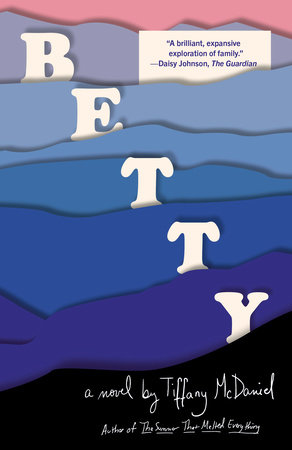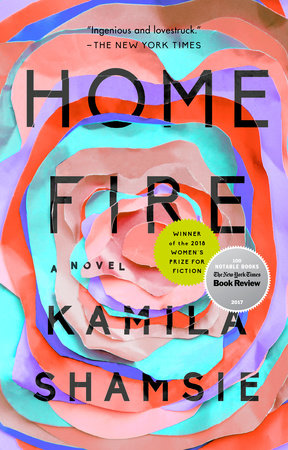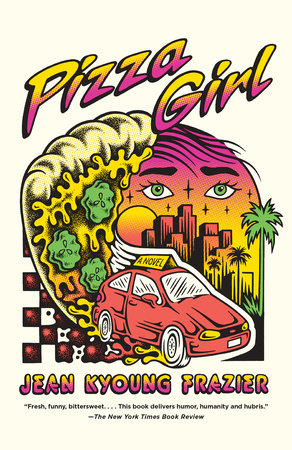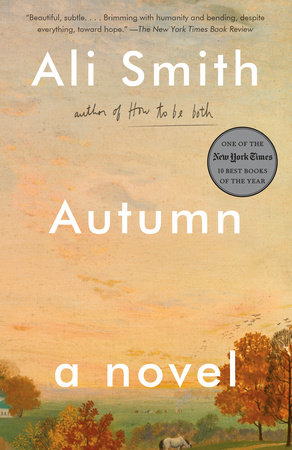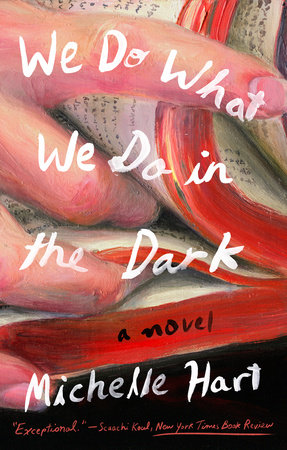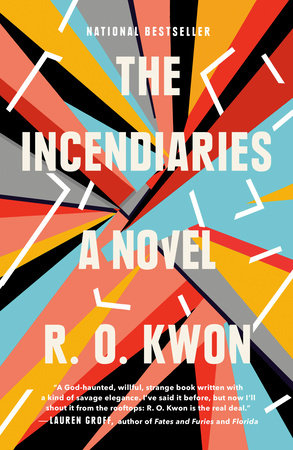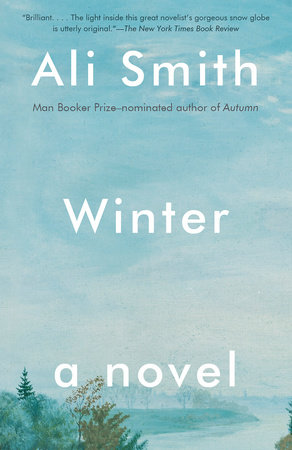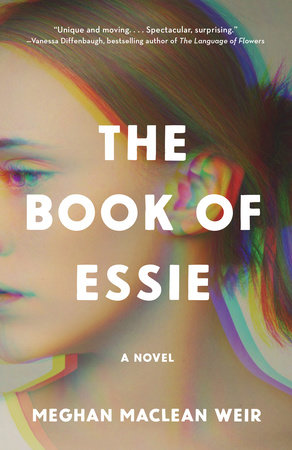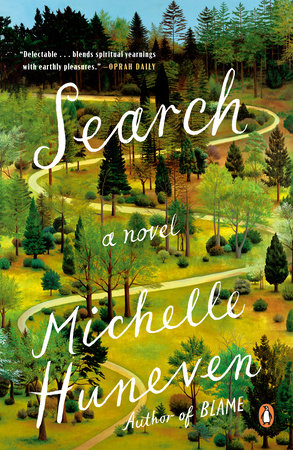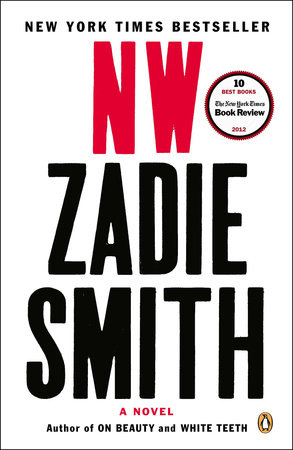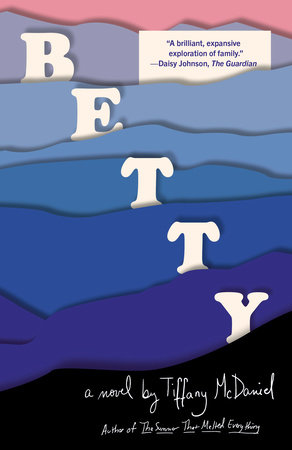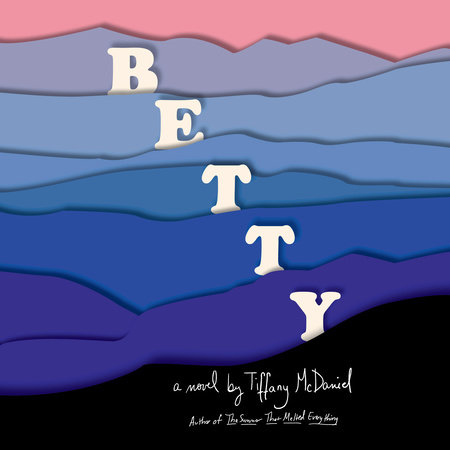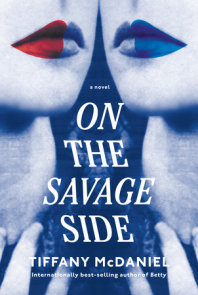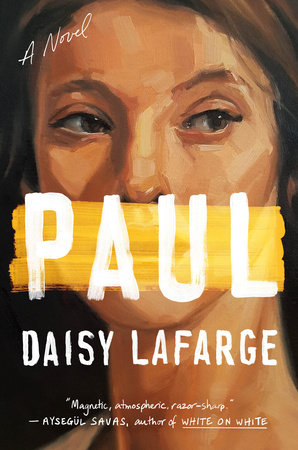Author Q&A
A conversation with
Tiffany McDaniel
author of
BETTY
Q: How long have you been working on BETTY? When did you know this was a book you needed to write?
A: I have spent nearly twenty years with BETTY. I first started work on the novel in 2002, when I was seventeen years old. I had begun to conduct Q&A sessions with Mom, digging deeper behind her experiences such as those of racism and sexism. This in turn led me to have sessions with my grandmother Alka and other family members. I wrote what would be the first version of the novel in 2003. From that point on, I queried agents. At that time, it was still mostly done through mail. Querying one agent at a time, they would often take up to six months to respond. In those first few years, I was reaching only a couple of agents a year. While doing so I would return to writing. Before I knew it, nearly two decades had passed of me querying agents. I didn’t anticipate starting out twenty years ago it would be this long of a journey getting the novel to the shelf. Because the story focuses on a girl’s coming of age from the perspective of a female narrator, I was often told by the agents I was querying that the story was too female, too risky, and too dark, which the agents said meant the book wouldn’t appeal to a wide enough audience. But for me, it was important not to give up on this story. The more I was told the novel was too female or too risky, the more I was determined to see its publication. With a novel like BETTY that explores, among other things, the trauma of sexual abuse, it’s important to tell stories like this. I was the victim of childhood sexual abuse by a much older man who was not a biological relative to me. Knowing the effect of this abuse on my life as an adult, and hearing about my grandmother’s sexual abuse, as well as speaking with generations of women in my family and others, I was even more adamant that stories like those in BETTY are shared. I still remember an agent’s words and how he had said I was making “sex into a bad guy.” He said we needed to see the women having sex in the book that was “nice.” What I think he did not understand, is that for these women, this was sex to them and it was violent and experienced in the absence of tenderness because these women were victims of generational abuse. I knew I would never give up the fight to see this book published.
Q: In your author’s note, you write that BETTY is inspired by generations of your family, in particular women like your grandmother. In what ways do you or don’t you see yourself reflected in these pages, too?
A: Despite the shocking secret I discovered along the way writing this novel, I feel even more connected to those generations that came before me, especially my mother and her family. I see myself reflected in Betty’s fierce determination and in Flossie’s need to dream big. I also see myself reflected in Fraya’s and Alka’s experiences of sexual abuse and trauma. I know those same emotions Betty’s sisters faced of having something done to me that I did not give permission for. In so many ways, BETTY is a mirror I can hold up and see reflections of myself. But my experiences coming of age in a predominately white community were different than the racism my mother and my grandfather experienced because of their brown skin. With my fair skin, inherited from my father, I was asked repeatedly by my classmates and peers when I was growing up if my mother was my biological mother or if I was adopted. Her skin color, they would say, was not my own. When I would assure them she was my biological mother, I would be hit with an onslaught of questions from both classmates and teachers of whether my mother had her own tanning bed and did nothing but tan all day, or if her father was black or from Mexico. Some even asked me if she “painted” her skin with something to make herself darker or if it was heavy makeup. Any time I was seen with my mother in public, I knew the questions would soon follow. Even strangers would approach my mother, asking “what” she was, as if she was a thing or someone who could never quite fit in. As a child, I absorbed these moments and in turn they began to shape me from a very early age. But although my racial experiences have been different than my mother’s and my grandfather’s, I don’t feel any less connected to them, because to say so would be to step back from being their granddaughter and daughter, which I am so proud to be.
Q: Breathed, OH—a rural town in the foothills of the Appalachians—is the setting of your debut novel, The Summer That Melted Everything, and is the backdrop for BETTY as well. Can you talk about the importance of place and the natural world in your work? And how your own upbringing informed the physical landscape your characters inhabit?
A: I grew up in both south central and southern Ohio, but it was the southern Ohio landscape that influenced me as a writer and it’s that setting that has been the place for the majority of the novels I’ve written to date. For me, place is a character itself. Though Breathed is a fictional name, it’s based on that real-life southern Ohio town Mom was raised in and the town I grew up falling in love with. What is so beautiful about southern Ohio, right in the foothills of the Appalachians, are the forested hills. Nature and animals have always been what I have cared so deeply about, so to write about the natural world, is to write from a place genuinely devoted to the natural ecosystem. This love of nature was nurtured by my mother who always gardened and taught us a deep appreciation of plants, communicated to her by her father, my grandfather Landon. Mom made sure his teachings were passed down to me and my sisters, so that we could continue what had been set in motion for generations in our family. I look at Landon as an environmentalist, teaching his children the great joys of conservation and preservation. Those natural approaches to the earth that Landon instilled in his children, were techniques taught to him by his mother and grandmother. It was through gardening and working with nature, that Landon connected to his Native American roots. It was the same connection that Mom upholds to this day. And it’s through these traditions that I continue to feel connected to and to identify with my family.
Q: Every chapter begins with a Bible quote. To what extent is faith woven into the narrative?
A: Faith casts a long shadow in the narrative. For the daughters, their faith is in the father. He serves as their anchor with messages of empowerment. But the girls also have faith in their sisterhood. I felt it was important to create for them their own place, known as A Faraway Place, which exists as an escape for them where they can pray to their future selves that they will make it to this place faraway where their hopes and dreams can come to pass. It’s a journey to finding the faith within themselves. This is woven in the trials and tribulations they experience. My hope with the chapters opening with biblical quotes was to emphasize that patriarchy that has been the central vein to how woman and men are identified in our society. Spiritually, we see the characters connecting more to the Native American customs and traditions than Christianity. The Cherokee were a matrilineal and matriarchal society, so they really leaned on women as leaders and thinkers within their historical framework. For Betty, she places her faith in his power of womanhood. Through the narrative, we watch this steer her through the sexism and racism she faces. Faith is yet another tool for her, handed down by her father, that allows her to persevere.
Q: There are heart-wrenching acts of violence and racism in the book. Was there any scene that you found most difficult to write?
A: There were many scenes that were emotionally difficult to write. The scenes between Leland and Fraya were among them. So, too, were the scenes of Betty and Landon facing racism, as my mother and grandfather experienced in their lives. But one of the most difficult scenes to write was the scene that channeled the real life abuse my grandmother suffered at the hands of her father. Mom was the first person she had ever told of the abuse. You sense a great amount of trust in that exchange, but you also sense the great weight of carrying that secret with you for years. Not even my grandfather knew of his wife’s abuse, so I think for my grandmother to have chosen her daughter in which to tell it to, was also a way for her to protect her daughter and say that these things happen, even by those men in our lives we believe will do no harm to us and love us no matter what. One of the things that was important for me to preserve from my grandmother’s story for the novel, was the fact that her own mother had carried her into the father’s bed. That unimaginable horror of being delivered to the father by the mother, was especially difficult to write, because I knew it had happened. I didn’t have the cushion of fiction for this detail. It’s been a scene that every time I revisit it, I acknowledge the reality of what my grandmother had gone through.
Q: Betty comes to rely on her father’s stories as a form of survival. What role has storytelling played in your own life?
A: Storytelling has a rich tradition in my family, especially in regards to Landon, his parents and his siblings, who lived in the deep wildernesses growing up. They had isolated themselves from the outside world and learned to keep back in the hollers. As Cherokees, they were still fearful of having their land and resources taken from them, which is one of the reasons they rarely ventured out. Because of that, storytelling was a way for them to widen their world, feel safe, and survive the threats outside their doorstep. For me, personally, storytelling is a way to connect to my grandfather and those generations. I never got the opportunity to meet my grandfather as he died before I was born, so it’s through the stories of him that I have a relationship with him. From an early age, my mother would share these stories of her father with me and my sisters. Mom made a point to give us books with stories containing Native American myths and legends. She wanted us to be proud of our lineage and to remember all those things her father had passed down to her. Just as Landon linked gardening with storytelling in the book, my mother did the same. And in the way she spoke about the seeds or the trees, she would inform us of our Native American origins. It was the thread that connected me to my grandfather until I felt entwined with his story and my ancestors. In the end, storytelling has grounded my identity and has become a compass for me, helping me find my way.
Q: What do you hope readers learn from the women in this book: Betty, Fraya, Flossie, Alka?
A: I hope readers learn the strength and love these women had for one another. More than that, I hope that the women’s stories of abuse in this book encourage victims of sexual assault and rape to tell their own stories. Being able to give the stage to victims, is giving them a voice. I hope that Fraya’s, Flossie’s, and Alka’s stories within the novel, empowers abuse victims to speak out without fear they will be judged, blamed, or held responsible. I also hope that readers learn the many facets of what it means to be female. We sense the desire for Betty, her sisters, and her mother to rewrite the stereotypes. Rewriting those stereotypes for my generation has certainly been helped by the generations of feminists who have come before me. It’s our duty now to continue that fight. As women we have to recognize the value of ourselves, and the value of our experiences. For me, one way to find that value and freedom as a woman is to write the female narrative in a way that remembers the struggles women have experienced, while also celebrating the female identity. I want readers to come away from the book having learned that female stories are not “too female,” but that they are human. That there is nothing inherently “risky” about telling these stories, and that our experiences as human beings should not be limited by our gender, but should be the vehicle through which we rise to the occasion of our lives.
Lastly, I hope that readers learn the beautiful rewards of female relationships. Those emotional ties that are cultivated in sisterhood, motherhood, and what it means to be those things, while still being yourself. I hope that it encourages women to seek that bond between one another, that it solidifies the importance and the genuine narration of those relationships. I remember one agent on my journey telling me that the women needed romantic relationships in the book. I think so many have the belief that women are made complete by romantic relationships. But as we see with these women in this novel, it’s through the bond of sisterhood, and the connection to our mothers and the history of the women who have come before us, that we find the way to our own identity. As we see especially with Betty, Fraya, and Flossie, the intimacies of sisterhood are so much more important than the intimacies of romantic relationships for them, despite that being the mainstream way we see a woman’s evolution. And sisterhood is not just biological, it’s a relationship to all the women in our lives. I think we have a great opportunity to form bonds with one another that will intensify and support our identities as women. These are the things I hope readers learn from the novel. That to be a woman, is to be blessed with not only strength, but the beautiful opportunities to share that strength with one another.
